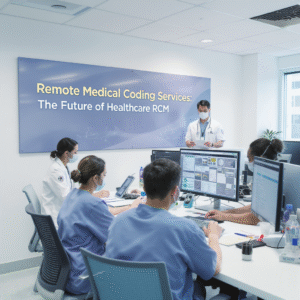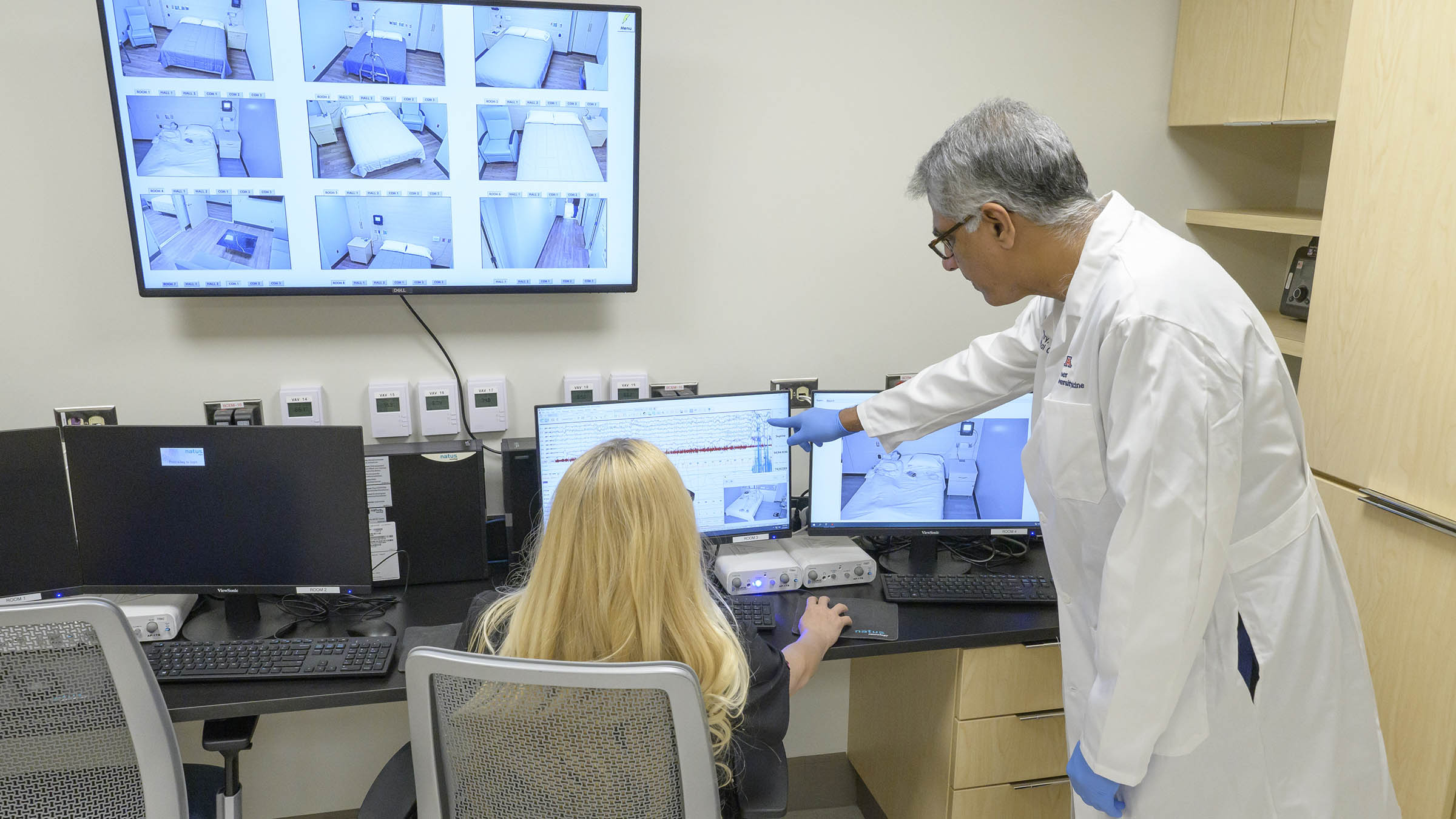A Guide to Medical Billing Audits and How They Save You Money
Medical Billing Audits
Medical Billing Audits
Healthcare costs continue to rise at an alarming rate, making it more crucial than ever for patients, healthcare providers, and insurance companies to ensure billing accuracy. Medical billing audits have emerged as a powerful tool to combat overcharges, identify errors, and ultimately save significant amounts of money. Whether you’re an individual patient reviewing your medical bills or a healthcare organization seeking to optimize your revenue cycle, understanding medical billing audits can be the key to substantial financial savings.

What Are Medical Billing Audits?
A medical billing audit is a systematic review and analysis of medical bills, claims, and related documentation to verify their accuracy, completeness, and compliance with applicable regulations and coding standards. These audits examine whether the services billed were actually provided, properly documented, and coded correctly according to industry standards such as CPT (Current Procedural Terminology) and ICD-10 (International Classification of Diseases).
Medical billing audits can be conducted internally by healthcare organizations as part of their quality assurance processes, externally by third-party auditing companies, or by insurance providers to verify claims before payment. The primary goal is to identify discrepancies, errors, and potential fraud while ensuring that billing practices comply with healthcare regulations and industry standards.
Types of Medical Billing Audits
Understanding the different types of medical billing audits helps you determine which approach might be most beneficial for your specific situation.

Internal Audits
Healthcare organizations often conduct internal audits as part of their ongoing compliance and quality improvement efforts. These audits are typically performed by trained staff members or dedicated compliance teams who review billing practices, documentation, and coding accuracy. Internal audits help identify patterns of errors, training needs, and areas for improvement before external reviewers discover problems.
External Audits
Third-party auditing companies specialize in reviewing medical bills and claims for accuracy. These external auditors bring specialized expertise and objectivity to the process, often identifying issues that internal teams might miss. Many patients and employers hire external auditing services to review large medical bills or ongoing healthcare expenses.
Insurance Audits
Insurance companies regularly conduct audits of claims submitted by healthcare providers to verify the accuracy and necessity of billed services. These audits help insurers control costs and identify potentially fraudulent or excessive billing practices. While these audits primarily protect insurance companies, they can also benefit patients by ensuring that premium costs don’t rise unnecessarily due to fraudulent billing.
Government Audits
Medicare, Medicaid, and other government healthcare programs conduct audits to ensure compliance with federal regulations and appropriate use of taxpayer funds. These audits are often more comprehensive and carry greater penalties for non-compliance, making them particularly important for healthcare providers who serve government program beneficiaries.
Common Billing Errors
Medical Billing Audits
Medical billing audits frequently uncover various types of errors that can significantly impact costs. Understanding these common mistakes helps explain why audits are so effective at saving money.

Upcoding
Upcoding occurs when healthcare providers bill for more expensive services or procedures than what was actually performed. This might involve billing for a complex procedure when a simple one was conducted, or coding for a longer office visit than actually occurred. Upcoding can result from intentional fraud or innocent coding errors, but the financial impact is the same.
Duplicate Billing
Healthcare systems sometimes generate duplicate bills for the same service, especially when multiple departments or providers are involved in patient care. These duplicates can slip through billing systems and result in patients or insurance companies paying twice for the same service.
Unbundling
Some medical procedures are meant to be billed as a package or bundle, but providers sometimes bill each component separately at a higher total cost. For example, if a surgical procedure includes pre-operative consultation, the surgery itself, and post-operative care, billing these as separate services (unbundling) typically costs more than billing them as a single comprehensive service.
Incorrect Coding
Medical coding is complex, and errors in assigning CPT or ICD-10 codes can result in inappropriate charges. Sometimes services are coded at higher complexity levels than warranted, or diagnostic codes don’t match the services provided, leading to billing discrepancies.
Services Not Rendered
In some cases, bills include charges for services, tests, or supplies that were never actually provided to the patient. This might occur due to administrative errors, system glitches, or, in worst-case scenarios, fraudulent billing practices.
The Financial Impact of Medical Billing Audits
The money-saving potential of medical billing audits is substantial and well-documented across various healthcare settings.
Individual Patient Savings
For individual patients, medical billing audits can result in significant out-of-pocket savings. Studies suggest that 70-80% of medical bills contain errors, with the average error amounting to several hundred dollars. For major procedures or extended hospital stays, audit-identified savings can reach thousands of dollars. Patients who have undergone complex surgeries, cancer treatments, or extended hospital stays often see the greatest benefits from professional billing audits.
Organizational Savings
Healthcare organizations that conduct regular internal audits often discover patterns of billing errors that, when corrected, can save substantial amounts over time. Additionally, proactive auditing helps organizations avoid costly penalties from government audits and reduces the risk of having to repay insurance companies for incorrectly billed services.
Insurance Company Savings
Insurance companies save millions of dollars annually through systematic auditing programs. These savings ultimately benefit all policyholders through lower premium increases and better coverage options. Some insurance companies share audit-identified savings with patients through reduced deductibles or co-payments.
Employer Savings
Companies that provide health insurance benefits to employees are increasingly using medical billing audits to control healthcare costs. By auditing high-dollar claims and identifying billing errors, employers can significantly reduce their healthcare spending while ensuring employees receive appropriate care.
How to Conduct a Medical Billing Audit
Whether you’re conducting an audit yourself or working with professionals, understanding the audit process helps ensure thoroughness and effectiveness.

Gather Documentation
Start by collecting all relevant documentation, including original medical bills, insurance statements, medical records, treatment notes, and any correspondence with healthcare providers or insurance companies. Having complete documentation is crucial for identifying discrepancies and supporting any disputes.
Review Service Descriptions
Carefully examine each billed service to ensure you understand what was charged and whether it matches the care actually received. Look for unfamiliar medical codes or procedures and research their meanings. Many billing errors become apparent when you compare billed services with your recollection of the care received.
Verify Dates and Frequencies
Check that all service dates are correct and that services weren’t billed multiple times inappropriately. Pay particular attention to diagnostic tests, laboratory work, and imaging studies, as these are commonly duplicated in billing systems.
Compare with Medical Records
If possible, obtain copies of your medical records and compare them with the billed services. This comparison often reveals services that were billed but not documented in your medical record, or discrepancies between what was documented and what was charged.
Check Insurance Processing
Review how your insurance company processed each claim, including any adjustments, denials, or partial payments. Sometimes insurance companies make errors in processing that result in patients paying more than necessary.
Calculate Potential Savings
Document any errors you identify and calculate the financial impact. This information will be crucial if you need to dispute charges with healthcare providers or insurance companies.
When to Hire Professional Auditing Services
While basic bill review can be done independently, certain situations warrant professional auditing services.
High-Dollar Bills
For medical bills exceeding $5,000-$10,000, professional auditing services often pay for themselves through identified savings. The complexity of high-dollar bills and the potential for significant errors make professional review particularly valuable.
Complex Medical Situations
Patients with chronic conditions, multiple specialists, or complex treatment regimens benefit from professional audits due to the increased likelihood of billing errors and the complexity of reviewing multiple providers’ charges.
Disputed Claims
When insurance companies deny claims or patients disagree with billing practices, professional auditors can provide the expertise needed to navigate disputes effectively. Their industry knowledge and experience with insurance company procedures can be invaluable in resolving complex billing issues.
Ongoing Healthcare Costs
Patients with ongoing medical needs, such as those requiring regular dialysis, chemotherapy, or other recurring treatments, often benefit from establishing relationships with professional auditing services to review bills regularly.
Choosing the Right Auditing Service
Selecting an effective medical billing audit service requires careful consideration of several factors.
Credentials and Experience
Look for auditing services with certified medical coders, healthcare finance professionals, and extensive experience in medical billing. Professional certifications from organizations like the American Health Information Management Association (AHIMA) or the American Academy of Professional Coders (AAPC) indicate specialized training and expertise.
Success Track Record
Ask potential auditing services about their success rates and average savings achieved for clients. Reputable services should be able to provide case studies or statistics demonstrating their effectiveness.
Fee Structure
Understand how the auditing service charges for their work. Some charge flat fees, others work on contingency (taking a percentage of savings identified), and some use hourly rates. Consider which fee structure aligns best with your situation and risk tolerance.
Specialization
Some auditing services specialize in particular types of medical care, such as surgical procedures, hospital stays, or specific medical specialties. If your situation involves specialized care, consider whether the auditing service has relevant expertise.

The Future of Medical Billing Audits
Technology continues to transform medical billing audits, making them more efficient and accessible. Artificial intelligence and machine learning algorithms are increasingly used to identify billing patterns and anomalies that might indicate errors or fraud. These technological advances are making audits more affordable and comprehensive, potentially expanding access to audit services for more patients and smaller healthcare organizations.
Additionally, increased transparency in healthcare pricing and growing consumer awareness of medical billing issues are driving demand for auditing services. As patients become more engaged in their healthcare costs, medical billing audits are likely to become an increasingly important tool for controlling healthcare expenses.

Conclusion
Medical billing audits represent a powerful opportunity to save money while ensuring billing accuracy and compliance. Whether you’re an individual patient facing large medical bills, a healthcare organization seeking to improve your billing practices, or an employer trying to control healthcare costs, medical billing audits can provide substantial financial benefits.
The high error rate in medical billing, combined with the complexity of healthcare pricing and coding, makes audits an essential tool for anyone dealing with significant medical expenses. By understanding the audit process, knowing when to seek professional help, and choosing the right auditing services, you can protect yourself from billing errors while potentially saving thousands of dollars.
As healthcare costs continue to rise, medical billing audits will likely become even more important for controlling expenses and ensuring that patients pay only for the care they actually receive. Taking advantage of this money-saving opportunity can provide both immediate financial benefits and long-term peace of mind regarding your healthcare expenses.



